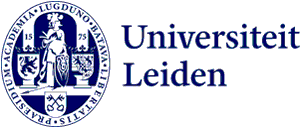
How do people best learn a language? 'It's incredible what you do when you talk'
According to Nivja de Jong, second language acquisition is 'the most fascinating subject in linguistics'. As a recently appointed professor of Second Language Acquisition and Pedagogy, she studies the question of how best to teach people a new language.
'To understand how people learn a second language, you need to know about a lot of different things,' says De Jong. You have to understand the structures of languages, but also which cognitive processes play a role in reading and listening, for example, and what the relationship is between the people who are communicating with each other. When I did my master’s in Leiden, this was for me one of the most interesting parts of linguistics.’
The research for her chair adds another aspect: how do you then combine all these factors to teach people a new language as efficiently as possible? You might understand how second language acquisition works, but that doesn’t mean you also know the best way to teach and test it. This chair explicitly includes that question.'
'Three words a second'
De Jong’s appointment is at both the Faculty of Humanities and ICLON, which means her work has a direct line to teaching practice. Her PhD students often also work as language teachers. She herself wants to focus on speaking skills, which she has researched before. 'Actually, it's incredible what you do when you talk. Up to three words a second come out of your mouth. That’s lightning fast if you consider all the things that have to happen before you can actually utter the words, but it also makes speaking skills very fleeting and therefore difficult both to teach and to test reliably.'
Always useful
Ultimately, De Jong hopes her research will help improve language teaching. 'For example, my team and I can do fundamental research into what “speaking a second language fluently” means: what aspects and processes play a role. That doesn't always have a direct relationship with practice, yet I always know that it will be useful at some point in the future. It may be a long way off, it may seem no more than a dot on the horizon, but I always know that what we find out will eventually lead to a better test or to better teaching. That concrete thing is what I find incredibly fascinating about this job.'
Nivja de Jong is Professor of Second Language Acquisition and Pedagogy. She has been appointed from 1 January 2023 at both the Faculty of Humanities and the Interfaculty Centre for Teacher Training, Educational Research and Continuing Education (ICLON), which runs Leiden's teacher training programmes.
